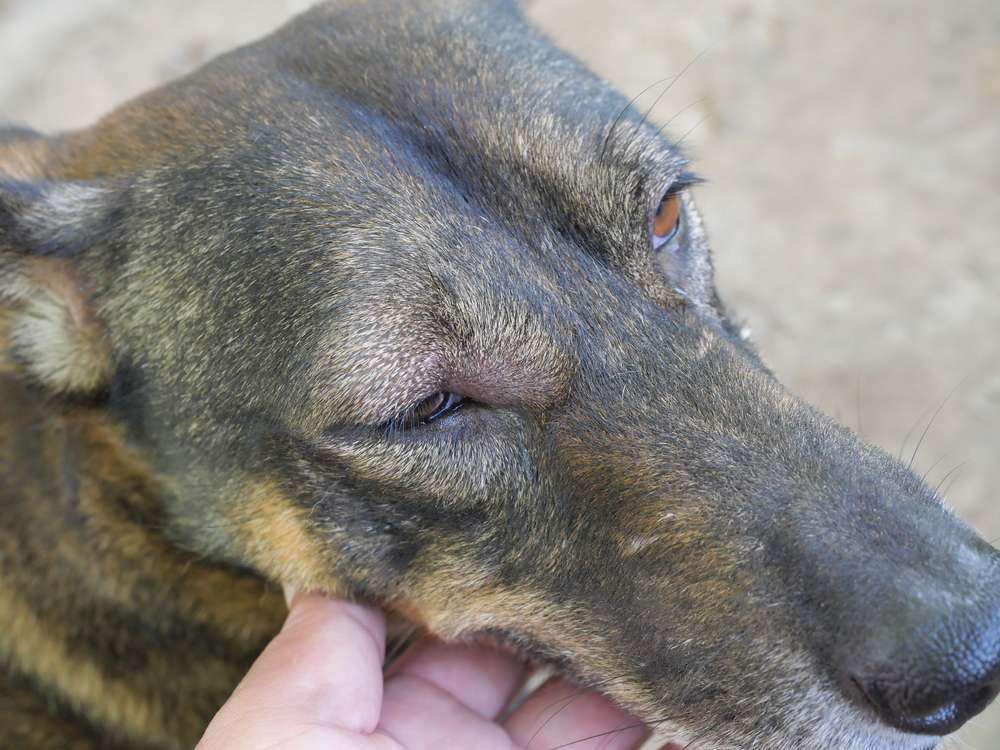Key Takeaways:
- Allergies, infections, and injuries can cause a dog's eye to swell.
- Swelling of the dog's eye can be accompanied by redness, discharge, or squinting.
- A swollen eye in dogs should be examined by a veterinarian to determine the underlying cause.
- Treatment for a swollen eye may include medications, cleaning the eye, or surgical intervention.
- Preventing future episodes of swollen eyes in dogs may involve avoiding allergens or keeping the dog away from potential hazards.
Introduction:
Have you ever looked into your furry friend's eyes and noticed something unusual? Maybe one of their eyes was puffy or swollen, leaving you worried and wondering what could be causing it. Well, fear not, because today we are going to delve into the fascinating world of why your dog's eye might become swollen. By understanding this topic, you will gain valuable knowledge that can help keep your beloved pet healthy and happy. Plus, wouldn't it be great to have the power to identify potential issues before they become serious? So, let's embark on this journey together and uncover the secrets behind your dog's swollen eye!
Word count: 107
Common Causes of Swollen Eyes in Dogs
Swollen eyes in dogs can be caused by various factors. One common cause is an allergic reaction. Just like humans, dogs can have allergies too. They may be allergic to certain foods, pollen, dust mites, or even certain medications. When a dog comes into contact with something they are allergic to, their immune system reacts and causes swelling in the eyes.
Another possible cause of swollen eyes in dogs is an injury or trauma to the eye. This could be from a scratch, a foreign object getting stuck in the eye, or even a fight with another animal. Infections can also lead to eye swelling in dogs. Bacterial or viral infections can affect the eyes and cause inflammation and swelling.
Signs to Determine if Your Dog's Eye Swelling is Serious
If your dog has swollen eyes, it's important to assess the severity of the situation. There are some signs that can help you determine if your dog's eye swelling requires immediate attention from a veterinarian:
- If your dog's eye is extremely swollen and bulging out.
- If there is discharge coming from the eye that is thick, yellowish-green, or bloody.
- If your dog is squinting or pawing at their eye constantly.
If you notice any of these signs, it's best to take your dog to the vet as soon as possible for further evaluation and treatment.
Simple Home Remedies to Reduce Your Dog's Swollen Eye
If your dog has mild swelling in their eyes and it doesn't appear serious, there are some simple home remedies you can try to reduce the swelling:
- Gently clean the area around your dog's eyes with a warm, damp cloth to remove any irritants.
- Apply a cold compress to your dog's eyes for about 5 minutes at a time, several times a day. This can help reduce inflammation and soothe the swelling.
- If your dog has allergies, try giving them an over-the-counter antihistamine that is safe for dogs. However, always consult with your vet before giving any medication to your dog.
When to Take Your Dog to the Vet for a Swollen Eye
While some cases of swollen eyes in dogs can be treated at home, there are situations where it's necessary to seek veterinary care:
- If the swelling doesn't improve within 24-48 hours or if it worsens.
- If your dog is in pain or discomfort and shows signs of distress.
- If there are other accompanying symptoms such as redness, discharge, or changes in vision.
A veterinarian will be able to properly diagnose the cause of the swelling and provide appropriate treatment for your furry friend.
Allergies and Their Impact on a Dog's Eye Swelling
Allergies can have a significant impact on a dog's eye swelling. Dogs can develop allergies to various substances such as pollen, dust mites, certain foods, or even certain medications. When a dog comes into contact with an allergen they are sensitive to, their immune system reacts by releasing histamines, which causes inflammation and swelling in the eyes.
Symptoms of allergies in dogs may include redness, itching, watery eyes, sneezing, and of course, swelling. It's important to identify the allergen causing the reaction so that you can take steps to minimize exposure. Your veterinarian may recommend allergy testing or a trial-and-error approach to determine the specific allergen.
Treatments for a Dog with a Swollen Eye: What You Need to Know
The treatment for a dog with a swollen eye will depend on the underlying cause. If the swelling is due to an injury or trauma, your vet may prescribe medications such as antibiotics or anti-inflammatory drugs to reduce inflammation and promote healing. They may also recommend using an Elizabethan collar to prevent your dog from scratching or pawing at their eyes.
If the swelling is caused by allergies, your vet may suggest antihistamines or other allergy medications to alleviate symptoms. In some cases, they may recommend allergy shots or immunotherapy to desensitize your dog's immune system to specific allergens.
It's important to follow your veterinarian's instructions and complete the full course of any prescribed medications. Regular follow-up visits may be necessary to monitor your dog's progress and make any necessary adjustments to the treatment plan.
In conclusion, there are several reasons why a dog's eye may become swollen, including allergies, infections, injuries, or underlying health conditions. It is important to consult a veterinarian for proper diagnosis and treatment to ensure the well-being of your furry friend.
When should I worry about my dogs swollen eye?
There are multiple reasons why a dog's eye may become swollen, including scratches on the cornea or bacterial infection. However, if your dog is experiencing discomfort and pain due to this swelling, it's crucial to take them to the veterinarian as soon as possible.
Can a dog eye injury heal on its own?
Is it possible for a dog eye injury to heal without intervention? In certain situations, yes. Some injuries such as corneal ulcers or scratches may heal on their own, but it is still important to have them examined by a veterinarian. If an infection occurs or if there is foreign material, like a grass seed, still in the eye, the consequences can be serious.
How do you treat a swollen eye in a dog?
The treatment for swollen eyes varies depending on the cause, but it can involve flushing or rinsing the eyes, applying warm or cold compresses, and taking antihistamines like Benadryl®. In more severe cases such as orbital cellulitis or retrobulbar abscesses, antibiotics and other medications may be needed.
Why is my dog's eye gland swollen?
The tear gland located near the eye provides a substantial amount of moisture. If it becomes prolapsed, it sticks out from the bottom or corner of the dog's eye. The swollen area becomes red and inflamed, which is the main indicator of cherry eye and the reason for its name.
What does a dog eye infection look like?
If your dog's eyes are producing excessive tears, watery, or you observe discharges in yellow, green, or white colors, it is possible that they have an eye infection. Additional indications of eye infections in dogs consist of pawing at their eye, increased blinking, swelling, redness, and squinting.
How do I know if my dog's eye injury is serious?
In order to prevent further damage to your dog's eye injury, it is crucial to seek veterinary care if you observe any of the following signs: overall discomfort, twitching or spasms of the eyelid, and squinting.
















